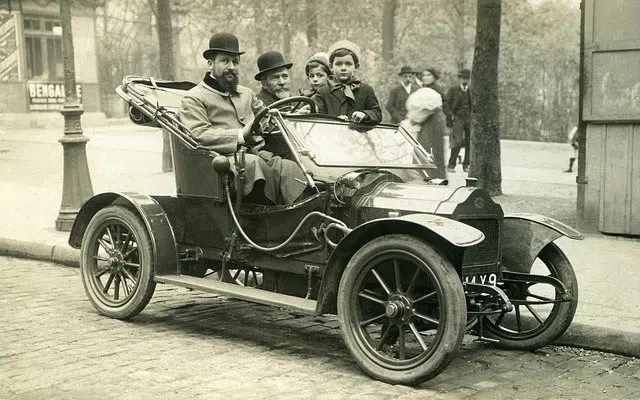
Since the Industrial Revolution ended in the 19th century, it is associated with the 19th century.
Nineteenth-century is an adjective that is used to refer to that which is linked to the 19th century . This means that the nineteenth century occurred, took place or had influence between January 1, 1801 and December 31, 1900 .
19th century era
The nineteenth century was characterized by great social and economic transformations. The Industrial Revolution that began in the 18th century , for example, was consolidated in the 19th century , allowing the growth of wealth. The creation of various types of machines; the rise of the railroad and the steamship; and the construction of canals and roads are some of the factors that led to changes in society and the economy.
The nineteenth-century world also included the independence of many American countries. Argentina , Brazil and Uruguay were some of the nations that proclaimed their independence in the 19th century .
Throughout this important century, the revolutions that took place in science, ideas, politics and technology brought about a transformation that began on the European continent but eventually reached the rest of the world. These phenomena were not isolated or temporary, but rather undeniably altered the course of history .
Topics such as labor movements, nationalism and liberalism took center stage in a world that was struggling to change the rules of the game to configure a new system. The nineteenth-century world was the origin of the most important ideological and social movements, in addition to the notable revolutions that are associated with that time.
19th century people
The idea of nineteenth-century is usually used to describe the people who lived in those years. In this way we can speak of nineteenth-century musicians , nineteenth-century writers , nineteenth-century painters , etc.
The German Ludwig van Beethoven can be considered one of the great nineteenth-century musicians , since he died in 1827 . Among the most important nineteenth-century philosophers is Karl Marx ( 1818 – 1883 ), while among the nineteenth-century artists are French painters such as Edgar Degas ( 1834 – 1917 ) and Paul Cézanne ( 1839 – 1906 ).
out of fashion
Nineteenth-century, finally, can be linked to what has gone out of fashion or is outdated : “There are unionists who intend to continue managing power with a nineteenth-century leadership that no one accepts anymore,” “I believe that our party must update itself and not remain tied to liberalism.” nineteenth-century” , “Books written in nineteenth-century language bore me” .
In this case, we must clarify that the use of this term is not always precise in terms of the era to which the traits or ideas it adjectives belong to. It simply refers to the fact that they are old, that they come from a distant past and, in the opinion of the issuer, they should stay there, since currently we have modern versions that adapt much better to our needs.

Something old-fashioned or old-fashioned can be described as "nineteenth-century."
Let's look at the three examples to appreciate these nuances in greater detail. In the first, the issuer points out that some union members have the objective of governing in the old way, with practices that belong to the past and that today are not considered valid or fair. It doesn't matter if they are actually from the 19th century, it is enough to understand that they are old-fashioned, too old.
The second tells us about the need to update a political party to leave behind the liberalism that characterizes them; According to the tone of the sentence we can understand that the sender is not satisfied with the current situation . Finally, we have a sentence in which the speaker rejects the "nineteenth-century" language of some books, evidently because he finds it too difficult to understand. Just as in the previous cases, not all of them have to belong to the 19th century, but the condition is that their language is not current.
